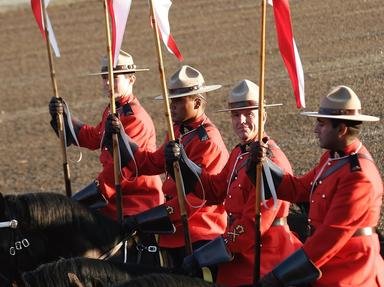14. In 1867, on the other side of the continent, some other British colonies created a cool new club called Canada. Four years later, British Columbia joined the Canadian Confederation, bringing the total number of provinces up to what?
From Quiz Becoming British Columbia
Answer:
Six
The Canadian Confederation began in 1867 with four provinces: Ontario, Quebec, Nova Scotia, and New Brunswick. Prince Edward Island was invited, but held out for a while. Manitoba was created in 1870 out of Rupert's Land as a province for the Metis people. The rest of Rupert's land was renamed the Northwest Territories. In 1871, just four years after Confederation, British Columbia joined as the sixth province.
Prince Edward Island joined soon after, in 1873. The Northwestern part of the Northwest Territories became Yukon in 1898, during the Klondike Gold Rush. Alberta and Saskatchewan were created together in 1905, accidentally splitting the city of Lloydminster between the two. In 1949, the colony of Newfoundland joined the Confederation as the tenth province. And in 1999, almost half of what was left of the Northwest Territories became Nunavut.





 = Top 5% Rated Quiz,
= Top 5% Rated Quiz,
 Top 10% Rated Quiz,
Top 10% Rated Quiz,